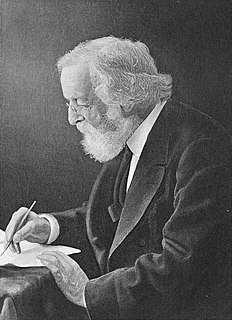A Quote by Kathe Kollwitz
To this day I do not know whether the power which has inspired my works is something related to religion, or is indeed religion itself.
Related Quotes
Religion! Is what you hear at church religion? Is that which can bend and turn, and descend and ascend, to fit every crooked phase of selfish, worldly society, religion? Is that religion which is less scrupulous, less generous, less just, less considerate for man, than even my own ungodly, worldly, blinded nature? No! When I look for religion, I must look for something above me, and not something beneath.
Art is not a substitute religion: it is a religion (in the true sense of the word: 'binding back', 'binding' to the unknowable, transcending reason, transcendent being). But the church is no longer adequate as a means of affording experience of the transcendental, and of making religion real - and so art has been transformed from a means into the sole provider of religion: which means religion itself.
The Hindu religion is the only one of the world’s great faiths dedicated to the idea that the Cosmos itself undergoes an immense, indeed an infinite, number of deaths and rebirths. It is the only religion in which the time scales correspond, no doubt by accident, to those of modern scientific cosmology. Its cycles run from our ordinary day and night to a day and night of Brahma, 8.64 billion years long, longer than the age of the Earth or the Sun and about half the time since the Big Bang.
Now you know well that the most deadly foes of the Catholic religion have always waged a fierce war, but without success, against this Chair [of St. Peter]; they are by no means ignorant of the fact that religion itself can never totter and fall while this Chair remains intact, the Chair which rests on the rock which the proud gates of hell cannot overthrow and in which there is the whole and perfect solidity of the Christian religion.
If therefore my work is negative, irreligious, atheistic, let it be remembered that atheism — at least in the sense of this work — is the secret of religion itself; that religion itself, not indeed on the surface, but fundamentally, not in intention or according to its own supposition, but in its heart, in its essence, believes in nothing else than the truth and divinity of human nature.
If one believes philosophers, then what we call religion is only a deliberately popularized or an instinctively artless philosophy. Poets seem to consider religion rather as a variation of poetry which by misjudging its proper beautiful game takes itself too seriously and one-sidedly. Philosophy, however, admits and recognizes that it can begin and complete itself only with religion. Poetry seeks only to strive for the infinite and despises worldly utility and culture, which are the true antitheses of religion. Eternal peace among artists is thus not far away.
The one eternal religion is applied to the opinions of various minds and various races. There never was my religion or yours, my national religion or your national religion; there never existed many religions, there is only the one. One infinite religion existed all through eternity and will ever exist, and this religion is expressing itself in various countries in various ways.
Religion itself cannot but be dynamic which is why "return" is an incorrect term. A return to the forms of religion which perhaps existed a couple of centuries ago is absolutely impossible. On the contrary, in order to combat modern materialistic mores, as religion must, to fight nihilism and egotism, religion must also develop, must be flexible in its forms, and it must have a correlation with the cultural forms of the epoch.
We [Americans] have secularized the public life of our country in such a way to say something is religious is something negative. Religion has now turned into a way to discredit people. It is futile and dishonest to argue about religion. Religion is a phenomenological umbrella; there are all kinds of religions. It makes a difference when your religion is telling you something true or something false.






































